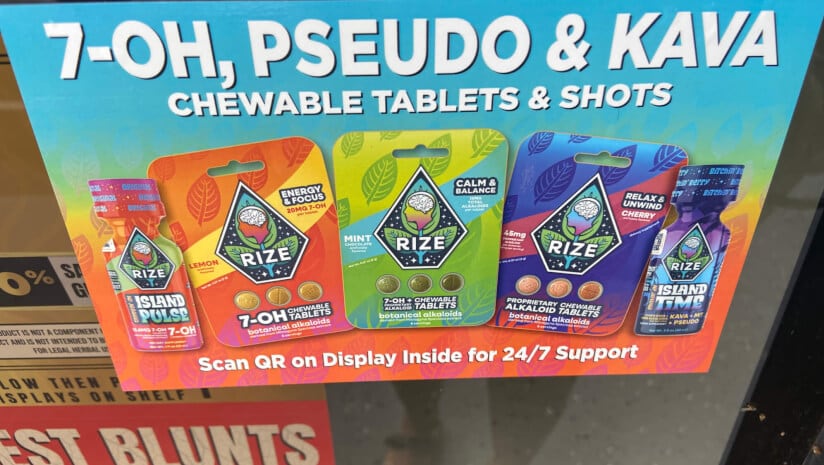The letter—signed by the American Herbal Products Association (APHA), Council for Responsible Nutrition (CRN), Consumer Healthcare Products Association (CHPA) and United Natural Products Alliance (UNPA)—thanked the administration for its efforts to secure and improve consumer access to safe and beneficial wellness products and offered a set of priorities that the trades said could lead to reform without “legislation or extensive notice-and-comment rulemaking.”
These recommnedations were addressed to Kyle Diamantas, JD, deputy commissioner for human foods, and Grace Graham, MPH, deputy commissioner for policy, legislation and international affairs, and outlined seven action items to promote “a more sensible and effective regulatory environment.”
Now is the time to ‘improve Americans’ health now!’
A spokesperson for UNPA told NutraIngredients that the trade associations worked cooperatively over several months to reach consensus on actions that could be achieved through administrative action.
“It was important to our members that these actions align with both the President’s Make America Healthy Again agenda and his Executive Order and that such goals be achieved without lengthy legislative proceedings which could hold up health benefits for consumers,” the spokesperson said.
UNPA also stated that it was critical to convey ideas of immediate steps that the new administration could take to benefit dietary supplement consumers and responsible industry without any action by Congress, adding that “legislative action would entail inevitable delays or no action at all, at a time when there is near universal agreement on the need to take serious action to improve Americans’ health now!”
Issues at hand: the trades’ wishlist
The letter offered a set of proposals, accompanied by solutions and rationale. According to the trades, the solutions would streamline regulations, reduce legal uncertainties and support industry innovation and consumer safety through clearer standards and documentation.
Provide certainty for industry, retailers and consumers regarding which dietary ingredients are legally marketed
The trade groups request a formal acknowledgement and clarification from FDA on which ingredients are considered “old” (pre-1994) versus “new” (post-1994) in order to simplify compliance for manufacturers and retailers, especially as it relates to New Dietary Ingredients (NDIs) and New Dietary Ingredient Notifications (NDINs).
Finalize the FDA draft guidance for industry on the labeling of probiotic quantity to be aligned with industry best practices
As the probiotic market continues to experience significant growth, the trades advocate for completing the development of guidance on probiotic quantity labeling to align with scientific standards, which would lead to improving industry compliance and consumer trust.
Revoke or revise FDA guidance document “Determining Whether Human Research Studies Can be Conducted without an IND”
The letter requests that the FDA revoke its guidance that imposes what the trades call ‘unnecessary’ Investigational New Drug (IND) requirements on nutrition and dietary supplement studies. They assert the removal would help foster innovation, eliminate financial hurdles and ultimately lead to advancements in nutritional science.
Revoke FDA draft guidance titled “NDI Enforcement Discretion”
The trades recommend removing draft guidance on enforcement discretion for New Dietary Ingredients (NDIs) until the final NDI regulations are established to eliminate industry uncertainty and support clearer compliance pathways.
Drug industry parity: ingredient quantity labeling at end of shelf life
Current regulations require manufacturers to ensure that added nutrients in dietary supplements are present at 100% of the ingredient amount declared in the Supplement Facts panel throughout the product’s shelf life, establishing a higher standard for dietary supplements than pharmaceuticals. The associations propose allowing dietary supplements to meet label claims at the end of shelf life with 90% of the declared amount to reduce legal uncertainties related to overages and degradation over time.
DSHEA disclaimer placement: removing a meaningless provision
The trades argue that the DSHEA disclaimer requirement is stricter than what the law stipulates and that as long as the disclaimer is prominent and connected to the claim, consumers are adequately protected. They assert the removal would lessen the likelihood of industry enforcement actions based on technical label placement issues, promote common sense and maintain consumer protections.
Modernize botanical ingredient labeling: Herbs of Commerce 3rd Ed.
The first edition of Herbs of Commerce, published in 1992, is formally incorporated into federal regulations as the labeling standard for the common names of botanical dietary ingredients. The trade groups recommend updating regulations to reference the third edition of Herbs of Commerce, which provides current common names for botanical ingredients. This would help industry confidently label botanical products using recognized names, reducing confusion among regulators, companies and consumers.
AHPA urges FDA to ‘act swiftly to deliver the clarity and consistency needed in dietary supplement regulation’
Speaking to NI, a spokesperson for AHPA said the organization is urging FDA to “act swiftly to deliver the clarity and consistency needed in dietary supplement regulation.”
Further, AHPA said that finalizing guidance on NDIs and publishing a definitive list of old dietary ingredients (ODIs) would help provide clarity for industry, retailers and consumers while also supporting innovation consistent with the intent of DSHEA.
“We also encourage FDA to formally adopt the third edition of Herbs of Commerce to modernize botanical labeling and to update DSHEA disclaimer requirements to reflect current enforcement practices. Taken together, these reforms would strengthen consumer trust, fuel innovation, reduce regulatory ambiguity and better align FDA’s policies with science and industry best practices.”
CRN President & CEO Steve Mister said his top priority is to create a climate where consumers can access the highest quality dietary supplements and functional food to maintain and improve their health.
“All the proposals we have outlined to the administration advance that goal and will help make America healthier,” he said, noting that CRN is optimistic that the recommendations will be well received.
“Some of these initiatives would modernize outdated policies or bring much-needed clarity to the industry, but they all help to ensure continued consumer access to safe, science-backed dietary supplements and functional food,” he added. “CRN will continue working in Washington to make sure the administration understands how these changes can strengthen consumer confidence and improve public health.”
UNPA President Loren Israelsen told NI that the letter to FDA received two acknowledgments of receipt, adding “We hope to have discussions in the near future.”



